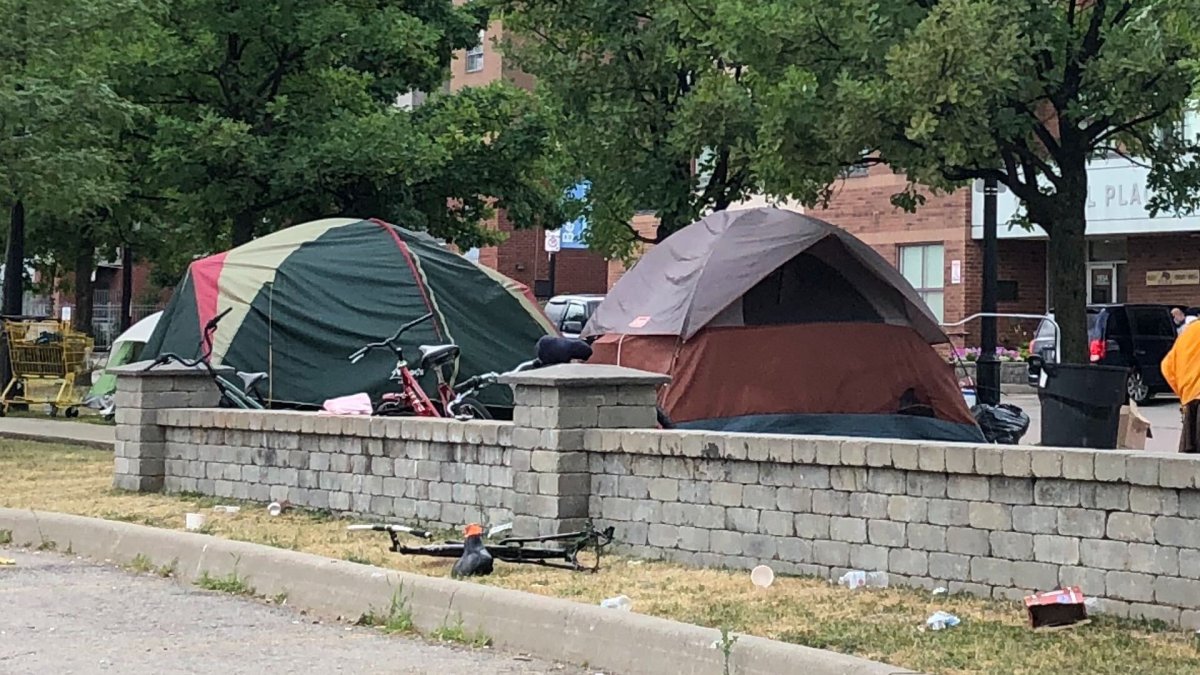The number of homeless encampments has grown to 15 across Hamilton while an injunction is in place that stops the city from forcibly removing tents from public property.

City staff confirmed that number during a meeting of Hamilton’s general issues committee on Wednesday, saying six of those sites are within the downtown core with the rest scattered in various wards across the mountain, lower city, Dundas and Flamborough.
Most visible to the community are dozens of tents pitched on York Boulevard outside FirstOntario Centre, and on Ferguson Avenue North near the Wesley Day Centre.
The injunction was granted to the Hamilton Social Medicine Response Team, Hamilton Community Legal Clinic, Ross & McBride LLP and Keeping Six in late July.
The coalition of medical and legal groups has urged the city to ensure acceptable housing options are in place before people are displaced from the encampments.
With a hearing on the injunction not scheduled until mid-October, much of the focus of Wednesday’s meeting was on whether the city should seek a settlement, rather than leaving the outcome in the hands of the courts.
City council voted 9-3 on Aug. 21 to challenge the injunction, but Lisa Nussey with Keeping Six, Hamilton’s harm reduction action team, says she and her colleagues “remain hopeful that we’ll be able to work out a negotiated settlement.”
She says “that doesn’t feel off the table to us yet,” insisting that “we’ve tried to work with anyone and everyone who will work with us.”
Stoney Creek Coun. Brad Clark has also joined those who are speaking in favour of negotiations, saying that he sees injunctions as a “blunt legal instrument that historically has created winners and losers.”
Clark adds that “we might get a decision that we don’t like, so it is better to try to come up with some form of alternate dispute resolution with the applicants than leave all the authority with the judge.”
Paul Johnson, Hamilton’s general manager of healthy and safe communities, says the current approach of the city’s outreach workers is to find housing, a shelter bed, or hotel rooms for those living in encampments.
But with the injunction in place, he acknowledges “we’re not having a ton of success.”
On Tuesday night, alone, Johnson says “there were 96 beds available in our shelter and hotel system, and five rooms available at our family shelter.”
Nussey says the injunction has given people “the stability to stay in one place.”
She adds that the community needs to seek solutions to the “complicated” problem of homelessness, and the barriers to housing that people face, rather than “the visibility of the problem.”
Councillors met behind closed doors for a legal update following the open portion of Wednesday’s meeting, but did not provide any updates following the in-camera session.
It was also revealed during Wednesday’s meeting that Mayor Fred Eisenberger made a pitch for provincial funding to address the encampment issue, during Premier Doug Ford’s visit to Hamilton last week.
The $1.9-million request would expand two programs for mental health and addictions that help house people experiencing homelessness.








Comments